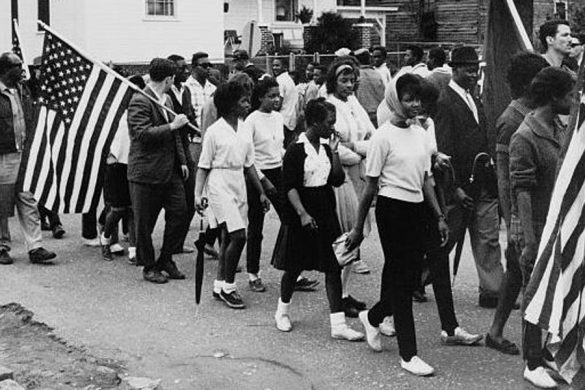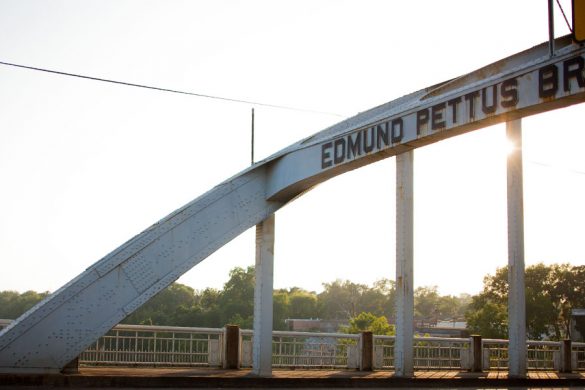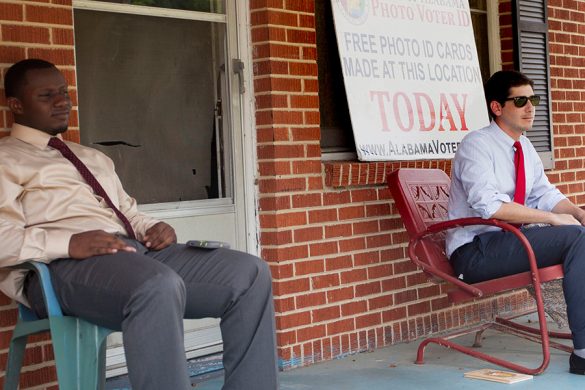
The Kansas Secure and Fair Elections Act requires individuals registering to vote in the state to submit proof of citizenship to complete their registrations. (Photo by Andrew Clark/News21)
PHOENIX – The American Civil Liberties Union has taken the state of Kansas to court over its controversial voting laws for the second time in six months.
The suit, filed Tuesday, seeks to block a rule approved by the Kansas State Rules and Regulation Board that would throw out votes for local and state races cast by those who registered to vote and didn’t provide proof of U.S. citizenship.
The rule has effectively created two classes of Kansas voters. Those who submit proof of citizenship when they register are permitted to vote in state, local and federal elections. Those who do not submit proof of citizenship are prohibited from voting in state and local elections.
The Kansas Secure and Fair Elections Act requires individuals registering to vote in the state to submit proof of citizenship – such as a birth certificate or a U.S. passport – to complete their registrations. The requirement took effect Jan. 1, 2013.
Kansas is the only state in the U.S. enforcing such a requirement for voter registration.

Kansas Secretary of State Kris Kobach. (Photo by Andrew Clark/News21)
The ACLU sued Kansas in February alleging that the proof of citizenship requirement violates federal law. In June, the 10th U.S. Circuit Court of Appeals in Denver ordered Kansas Secretary of State Kris Kobach to register those who attempted to, but could not because they did not provide the proof of citizenship. Kobach began registering the voters after the ruling – but only allowing them to vote in federal elections, pursuant to the rule passed by the board.
In Tuesday’s petition, the ACLU says Kobach, who championed the S.A.F.E. Act, is effectively depriving thousands of Kansans of their right to vote in state and local elections by creating the two-class registration system.
The ACLU also condemned Kobach’s creation of the the two-class system in a July 5 open letter, saying it creates “bureaucratic hurdles” for voters and urges him to rescind his instructions.
“I’ve never heard of any such (system),” said Doug Bonney, the legal director of the ACLU Foundation of Kansas. “Kansas has voting laws that are absolutely unique. No other state has done what Kansas has done, and it has caused a massive mess.”
In another ACLU suit filed in November 2013, Shawnee County District Judge Franklin Theis ruled in January that Kobach doesn’t have the authority to conduct a two-class registration system. Kobach asked Theis to reconsider his ruling after Brian Newby, the director of the U.S. Election Assistance Commission, unilaterally modified federal registration forms for Kansas and two other states to require the submission of proof of citizenship.
Theis stood by his decision June 17. But Kobach is still attempting to enforce the rule.
“We sued Kobach about basically this same scheme … back in 2013, and we won that case,” Bonney said, referring to Theis’s ruling. “Notwithstanding that decision, he has done it again. And that’s why we filed suit.”
In a statement released Tuesday, Kobach called the latest suit a “frivolous” attempt by the ACLU to shut down the state’s proof of citizenship requirement.
“The ACLU ignores the fact that Kansas law clearly provides the Secretary of State’s office with the authority to issue the regulation in question,” Kobach said in the statement. “The ACLU also ignores the fact that the regulation was issued in order to comply with a federal court order.”





